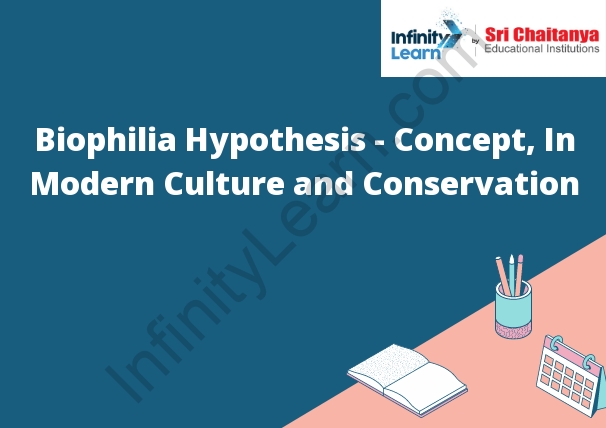Table of Contents
Introduction to Biophilia Hypothesis
The biophilia hypothesis is the idea that humans are hardwired to seek connections with nature and other forms of life. The term was first coined by Edward O. Wilson, a biologist and naturalist, in his 1984 book of the same name. According to Wilson, humans have an innate need to affiliate with other forms of life, a need that is based in our evolutionary history.
The biophilia hypothesis has been supported by a number of studies, which have shown that people who have more exposure to nature are happier and healthier than those who have less exposure. One study, for example, found that people who have more plants in their homes have lower blood pressure and stress levels. Other studies have shown that people who have contact with nature are more likely to have a stronger immune system and are less likely to suffer from depression.
While the biophilia hypothesis has not been definitively proven, it does offer a plausible explanation for the strong connection that many people feel with nature. The hypothesis also has a number of practical applications, such as promoting the use of green spaces in urban areas and encouraging people to spend more time outdoors.

The Development of Biophilia Hypothesis
The biophilia hypothesis suggests that there is an innate tendency in humans to seek out contact with nature and other forms of life. This hypothesis is based on the idea that humans are evolutionarily programmed to need contact with other living things in order to survive and thrive. There are a number of different theories about why the biophilia hypothesis exists, but most experts agree that it is a combination of genetic and environmental factors.
There is some evidence that supports the biophilia hypothesis. For example, studies have shown that people who have more contact with nature are typically healthier and happier than those who do not. Additionally, animals that are kept in captivity often experience physical and psychological problems if they are not given access to natural environments.
There are also a number of possible explanations for why the biophilia hypothesis exists. Some experts believe that it is because humans are hardwired to connect with nature due to our evolutionary history. Others believe that it is because humans need contact with nature to thrive both physically and emotionally.
Biophilia in Context of Biological Evolution
Biophilia is a term that was coined by Edward O. Wilson in 1984. It is the hypothesis that humans are genetically drawn to certain features of the natural world. Wilson defines biophilia as “the urge to affiliate with other forms of life.” There is evidence that humans are genetically predisposed to biophilia. For example, studies have shown that infants are more attracted to faces that are symmetrical, and that people are more likely to have positive reactions to nature scenes.
There are a number of possible explanations for why humans might be genetically drawn to the natural world. One possibility is that biophilia is an evolutionary adaptation that helps us survive. Studies have shown that people who have a strong connection to nature are more likely to be physically healthy and have positive mental health. They are also more likely to be environmentally conscious and engaged in conservation efforts. Another possibility is that biophilia is a result of the way that humans evolved. Our ancestors spent a significant amount of time outdoors and were intimately connected to the natural world. This connection may have resulted in the development of certain instincts and preferences that are still present in humans today.
There is evidence that biophilia has benefits for both individuals and societies. In addition to the health and environmental benefits mentioned earlier, biophilia can also help to promote creativity and innovation. For example, a study by Harvard University found that people who spend time in nature are more likely to come up with new ideas. This
Biophilia in Modern Culture
Biophilia is an innate love of life and living systems. The term was coined by Edward O. Wilson in 1984 to describe humanity’s inherent affiliation with the natural world. Biophilia may be expressed as a deep-seated need for contact with nature and living things, or as an appreciation and love of nature and life.
The biophilia hypothesis suggests that humans have an innate need to affiliate with other forms of life. This need may be expressed as a deep-seated need for contact with nature and living things, or as an appreciation and love of nature and life. The biophilia hypothesis has been supported by a number of studies, which have shown that humans exhibit a preference for natural environments and living things.
Biophilia has been used to explain a wide range of human behaviors, including our attraction to natural landscapes, our love of animals, and our need for physical activity. Biophilia may also play a role in our spiritual beliefs and our urge to explore the universe.
Biophilia in Conservation
Biophilia is the innate love of life and living systems. It is often thought to be a motivating factor in conservation efforts, as people are driven to protect and conserve nature because they feel a connection to it. Biophilia can be seen in the way people interact with nature, often seeking out opportunities to connect with the natural world. It can also be seen in the way people respond to stimuli from the natural world, such as the sight of trees or the sound of running water. Some research has even suggested that people who are biophilic may have better physical and mental health outcomes.







